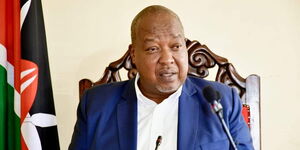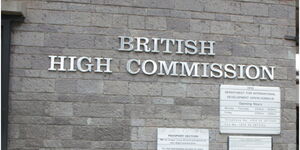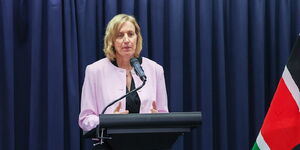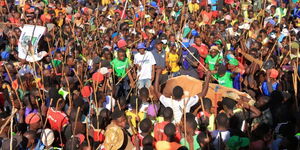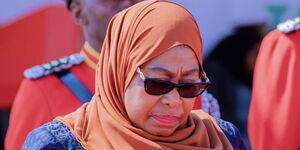As the Hindu community gears up to celebrate the Diwali and Hindu New Year celebrations, set to be held from Friday, October 17, to Monday, October 20, Mining Cabinet Secretary Ali Hassan Joho has issued several directives to the community on the use of fireworks ahead of the important festivities.
The directives revolve around the time to use the fireworks, authorised venues, issuance of firework permits, and the persons bestowed with the responsibility of setting off the fireworks.
“This is to inform the general public that Diwali and Hindu New Year celebrations will be held from Friday, October 17, to Monday, October 20, 2025,” he noted.
“These festivities are traditionally celebrated with fireworks in authorised venues,” Joho added.
In the directives issued on Tuesday, October 14, CS Joho urged parties carrying out firework displays to ensure that they obtain necessary permits to hold fireworks from the State Department for Mining or the County Mining offices.
Notably, CS Joho directed that firework displays be held between 7pm and 11pm only during the authorised dates, which is the four-day celebration period.
Also, fireworks are used only at the authorised venues, such as clubs, hotels, temples, sports grounds, school compounds, or any other venue authorised by an Inspector of Explosives.
Another directive was that display shells were to be limited to a maximum of four-inch calibre in all venues in urban and built-up areas except where exempted by an Inspector of Explosives.
The Ministry also instructed that only qualified, experienced, and sober persons shall be allowed to fire aerial shells and other aerial display fireworks.
CS Joho also issued instructions to firework dealers, urging them to ensure that fireworks are not sold to any child who is below thirteen years, as doing so would be an offence under the Explosives Act, Cap 115.
Further, the dealers were directed to sell aerial display fireworks such as shells, rockets, roman candles, and cakes to holders of permits certified to display fireworks, duly signed by an Inspector of Explosives.
Diwali, also known as the Festival of Lights, is one of the most important Hindu festivals. It celebrates the victory of light over darkness and good over evil, symbolised by Lord Rama’s return to Ayodhya after defeating Ravana. During Diwali, homes are decorated with oil lamps (diyas), candles, and rangoli patterns, and people exchange sweets, gifts, and fireworks.
The Hindu New Year, which often coincides with or follows Diwali, depending on the regional calendar, marks a time of renewal and prosperity. Many Hindus perform special prayers for wealth and success, settle old debts, and open new account books for business, symbolising a fresh start.
The day is also a time for family gatherings, festive meals, and gratitude for blessings received.


